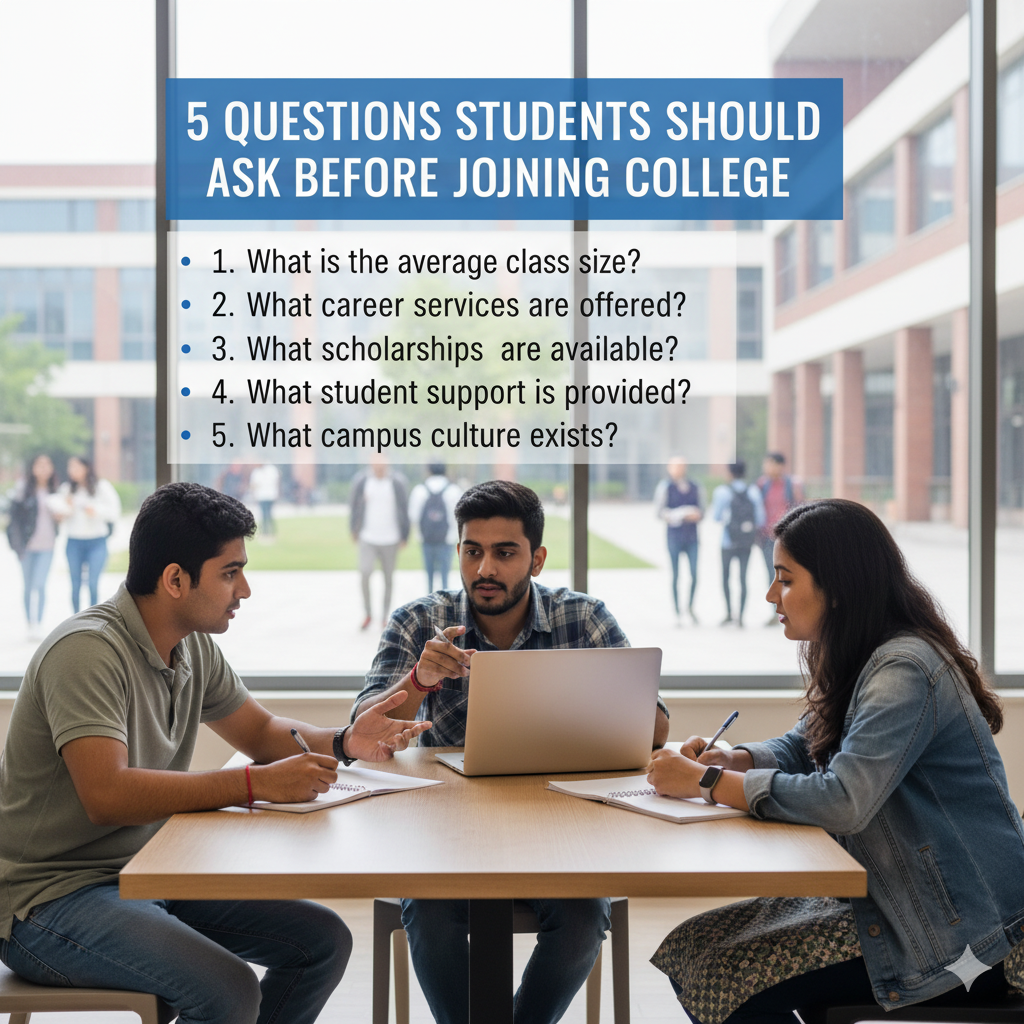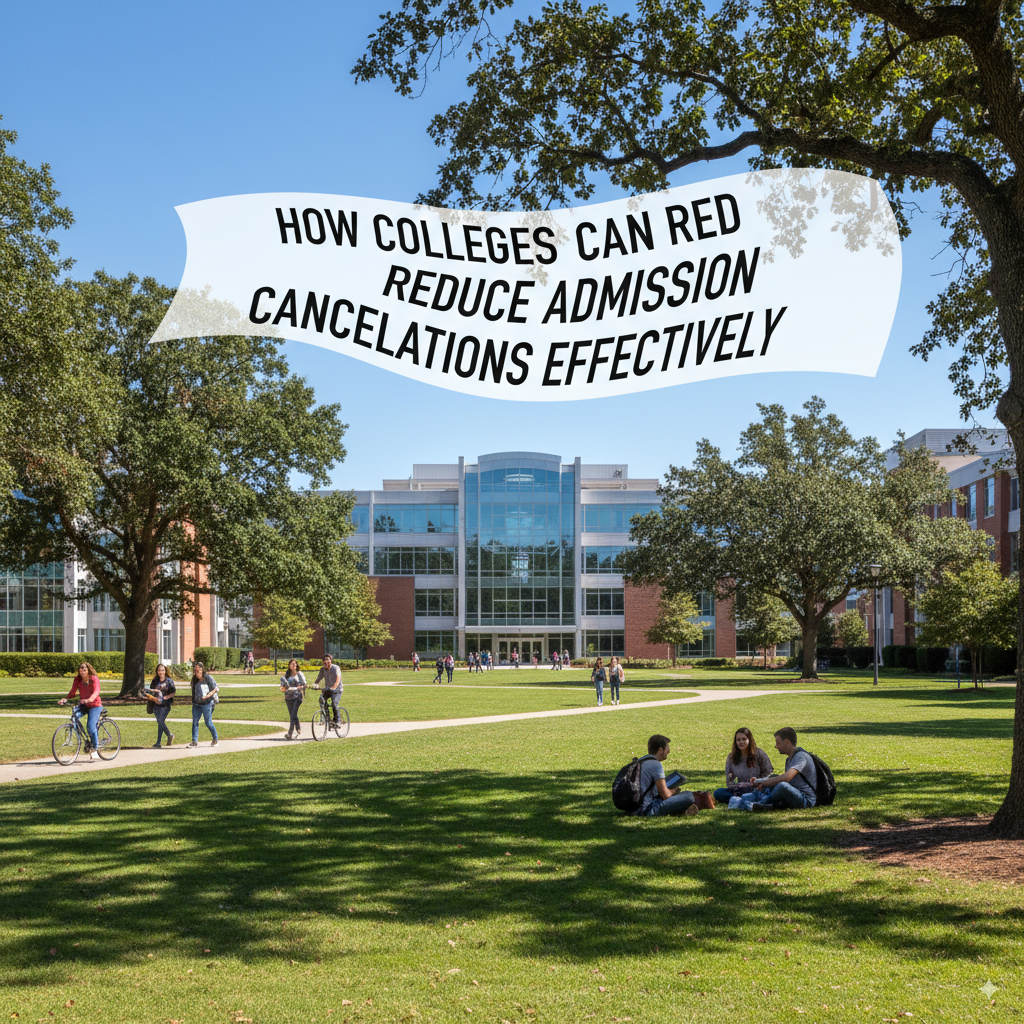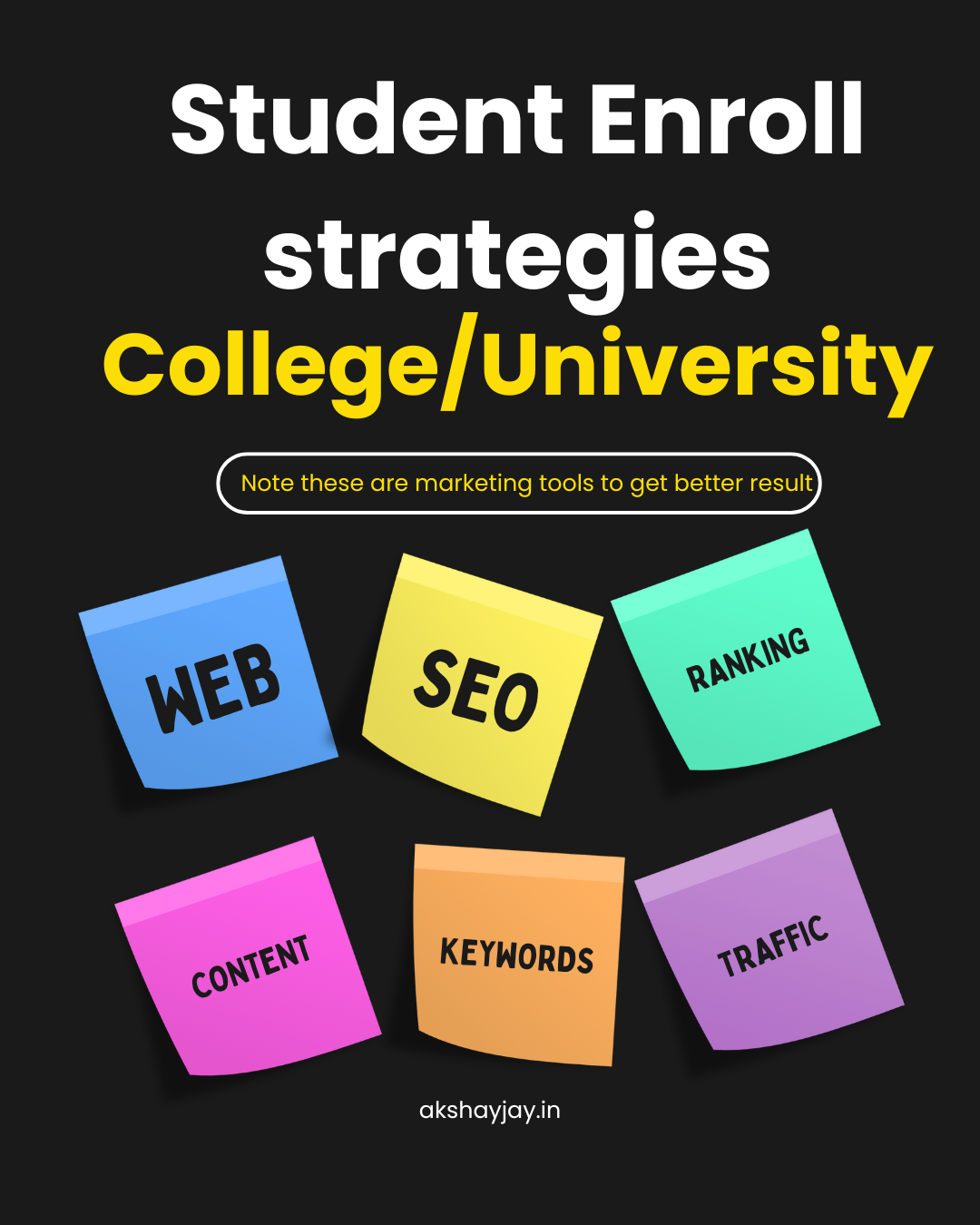In today’s fast-paced digital world, students and parents no longer rely solely on brochures or campus visits to choose a college. Their journey begins online, with a simple search query like “best engineering colleges in Bangalore” or “top MBA programs near me.” If your institution does not appear in those search results, you risk losing valuable leads to competitors. This is where SEO for colleges becomes a game-changer.
Search Engine Optimization (SEO) is not just a marketing buzzword; it is a necessity for every educational institution that wants to attract the right students, build a credible online reputation, and grow admissions consistently. A well-implemented SEO strategy helps colleges rank higher on Google, increase website traffic, and position themselves as a trusted authority in the education space.

Why SEO for Colleges is Essential
The higher education market is more competitive than ever. With thousands of institutions vying for attention, standing out online is crucial. SEO for colleges ensures that prospective students find your website when searching for programs, courses, scholarships, and admissions information. Unlike paid advertising, SEO is a long-term investment that builds visibility organically, helping your college remain discoverable year after year.
What SEO for Colleges Means
SEO for colleges refers to the process of optimizing your institution’s website and online content to rank well in search engine results pages (SERPs). It involves keyword research, content creation, technical optimization, link building, and local SEO strategies. In simple terms, SEO makes it easier for students and parents to find your institution online, compare programs, and ultimately choose your college over others.
How SEO for Colleges Works
SEO for colleges works through a mix of on-page and off-page strategies. On-page SEO focuses on optimizing your website content, structure, and user experience. Off-page SEO builds your online reputation through backlinks, reviews, and directory listings. Together, these elements make your website trustworthy in the eyes of both search engines and prospective students. The result? More organic traffic, higher-quality inquiries, and improved enrollment rates.
1. SEO for Colleges Builds Online Visibility
Ranking high on search engines means students can easily find your college. If your website appears on the first page of Google for keywords like “best B.Tech college in Bangalore,” your chances of getting applications increase dramatically. SEO for colleges ensures your website is optimized with relevant keywords, engaging content, and a clear structure that appeals to both search engines and students. High visibility online also builds credibility—students often trust colleges that show up first in their searches.
2. SEO for Colleges Attracts Quality Students
Not all website visitors are potential applicants. The power of SEO for colleges lies in its ability to attract students who are actively searching for the exact programs you offer. With the right keyword targeting, your college can appear in searches like “affordable MBA colleges near me” or “B.Sc. in Data Science in Bangalore.” This level of precision ensures that your marketing efforts reach motivated, high-intent students who are ready to take the next step.
3. SEO for Colleges Builds Brand Reputation
A strong SEO strategy not only increases traffic but also strengthens your brand reputation. Appearing in top search results signals trustworthiness, professionalism, and academic excellence. Positive Google reviews, well-optimized listings, and a user-friendly website all contribute to building credibility. Over time, SEO for colleges helps position your institution as a thought leader, making students and parents more likely to choose your programs over competitors.
4. SEO for Colleges is a Cost-Effective Marketing Strategy
Traditional advertising campaigns like print ads, TV commercials, and billboards can be expensive and hard to measure. In contrast, SEO for colleges is cost-effective and measurable. Once your website achieves high rankings, you can generate inquiries and applications consistently without paying for every click. This makes SEO a smart long-term investment for colleges seeking to reduce marketing expenses while maintaining a steady flow of quality leads.
5. SEO for Colleges Enhances Local Search Visibility
Many students prefer colleges near their hometown or within a specific region. Optimizing for local search is crucial for institutions targeting regional admissions. Local SEO includes optimizing your Google Business Profile, ensuring accurate directory listings, and targeting location-based keywords like “top PU colleges in Bangalore.” With SEO for colleges, your institution can dominate local search results, attract more walk-in inquiries, and build a strong community presence.
6. SEO for Colleges Supports Content Marketing
A well-structured content marketing plan goes hand in hand with SEO. Colleges can publish blogs, student success stories, guides, and program highlights to attract organic traffic. For instance, a blog post titled “Top Career Opportunities After a B.Tech Degree” can attract prospective engineering students searching for career guidance. SEO for colleges ensures this content ranks well, builds trust, and creates a valuable connection with students before they even step onto your campus.
7. SEO for Colleges Improves Website Experience
User experience plays a huge role in SEO rankings. Students expect a seamless browsing experience, whether they’re checking program details or filling out an inquiry form. A slow, poorly designed website can drive potential applicants away. SEO for colleges focuses on creating a fast, mobile-friendly, and easy-to-navigate site that keeps users engaged. The better the experience, the higher your search rankings and conversion rates.
8. SEO for Colleges Offers a Competitive Edge
While some institutions are investing in digital strategies, many still rely heavily on offline marketing. This gives your college a huge opportunity. With an effective SEO strategy, you can outrank competitors, dominate niche search terms, and establish your institution as the go-to choice for students. By focusing on SEO for colleges, you create a sustainable advantage that will pay dividends for years.
9. SEO for Colleges Provides Measurable Results
Unlike traditional marketing methods, SEO delivers data-driven insights. Tools like Google Analytics and Search Console show where your traffic comes from, which keywords are performing, and how many visitors convert into leads. This transparency makes SEO for colleges a smart investment, as you can continually refine your strategy to achieve better results and higher ROI.
10. SEO for Colleges Future-Proofs Admissions Marketing
Technology and student search behaviors evolve rapidly. Voice search, AI-driven recommendations, and video-based search are already shaping the future of education marketing. By investing in SEO for colleges today, you future-proof your institution’s visibility and ensure your programs remain discoverable, no matter how search algorithms change.
Conclusion
In the competitive education market, SEO for colleges is not a luxury—it’s a necessity. It boosts your visibility, builds trust, attracts quality students, and saves marketing costs over time. Colleges that prioritize SEO gain a lasting advantage, ensuring their programs and brand stay top of mind for prospective students. The earlier you start optimizing, the faster you’ll see results and long-term admissions growth.
Boost Your College Admissions with SEO for Colleges!
Want your college to rank higher, attract quality students, and grow your admissions pipeline? Let’s create a powerful, customized SEO for colleges strategy for your institution.
Frequently Asked Questions (FAQ) About SEO for Colleges
1. What is SEO for Colleges?
SEO for colleges is the process of optimizing a college’s website, content, and online presence to rank higher in search engine results. This helps students and parents find programs, admission details, and other information more easily.
2. Why is SEO important for educational institutions?
SEO is essential because students begin their college search online. A strong SEO strategy ensures your institution appears in top search results, builds credibility, and increases admissions inquiries.
3. How long does it take for SEO to show results for a college website?
SEO is a long-term investment. Colleges typically see noticeable improvements in rankings and traffic within 4–6 months of consistent optimization, with stronger results over time.
4. What are the key SEO strategies for colleges?
Important strategies include:
- Keyword optimization for courses and programs
- Local SEO for regional visibility
- Content marketing through blogs and guides
- Technical SEO for fast, mobile-friendly websites
- Link building and reputation management
5. How does local SEO benefit colleges?
Local SEO helps colleges appear in Google Maps and location-based searches like “colleges near me.” This is especially important for attracting students in your region who may prefer nearby institutions.
6. Is SEO better than paid advertising for colleges?
Both have value, but SEO provides long-term results without ongoing ad costs. Once your site ranks well, it continues to generate organic traffic, making SEO a cost-effective solution for colleges.
7. How can colleges track SEO success?
Colleges can use tools like Google Analytics, Search Console, and keyword ranking trackers to measure traffic, leads, and application growth. This ensures every marketing decision is data-driven.
8. Can SEO help international students find my college?
Yes! With multilingual SEO strategies and country-specific keywords, colleges can attract international students searching for programs abroad, expanding their reach globally.
9. What type of content should colleges create for SEO?
Educational institutions should focus on blogs, program guides, career advice articles, alumni success stories, and FAQs. High-quality, keyword-optimized content improves rankings and student engagement.
10. How do I start SEO for my college?
Start with an SEO audit to identify gaps, optimize key pages, create a content strategy, and improve site speed. Hiring an expert or agency specializing in SEO for colleges can speed up results and ensure a strong strategy.






